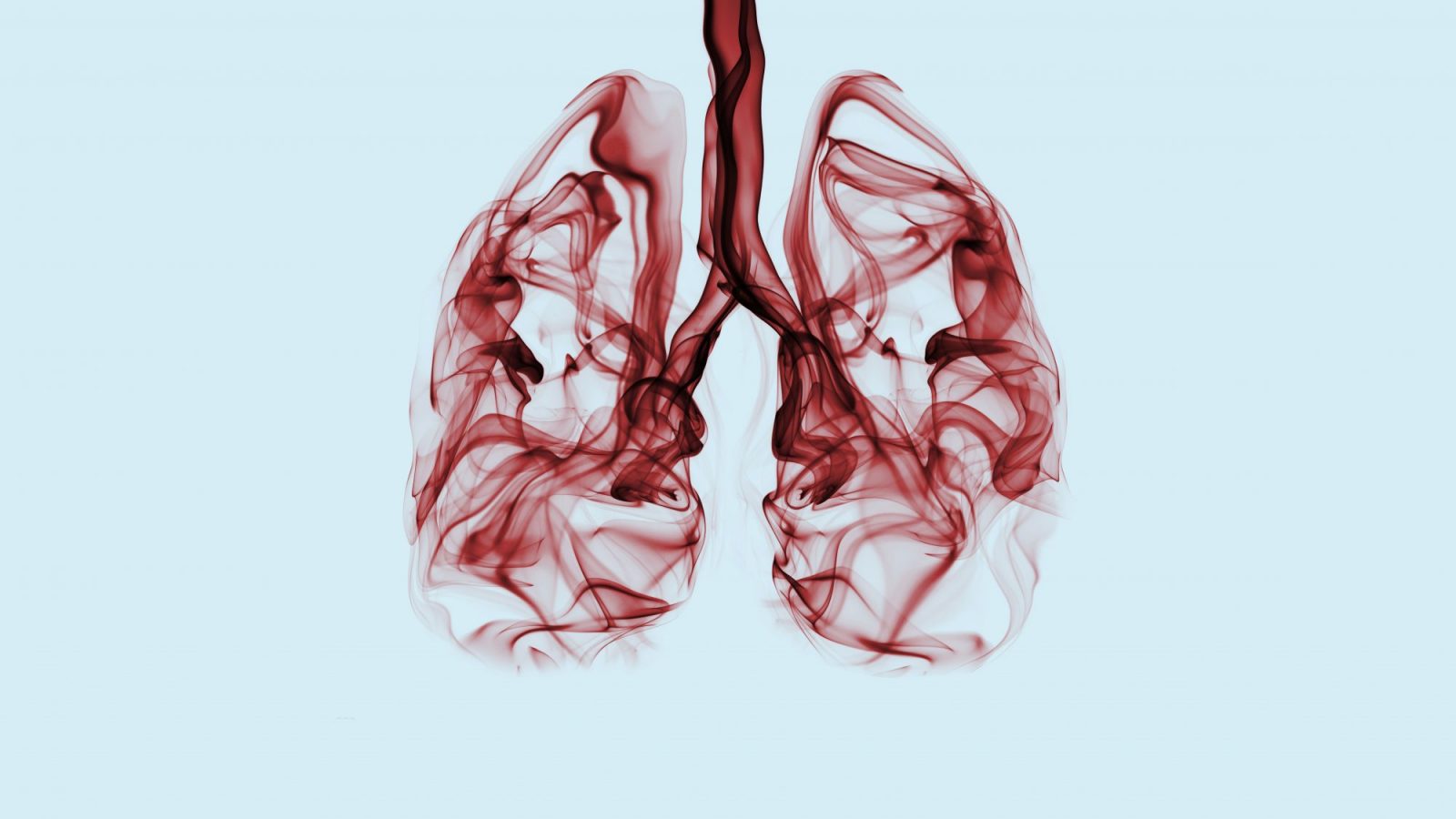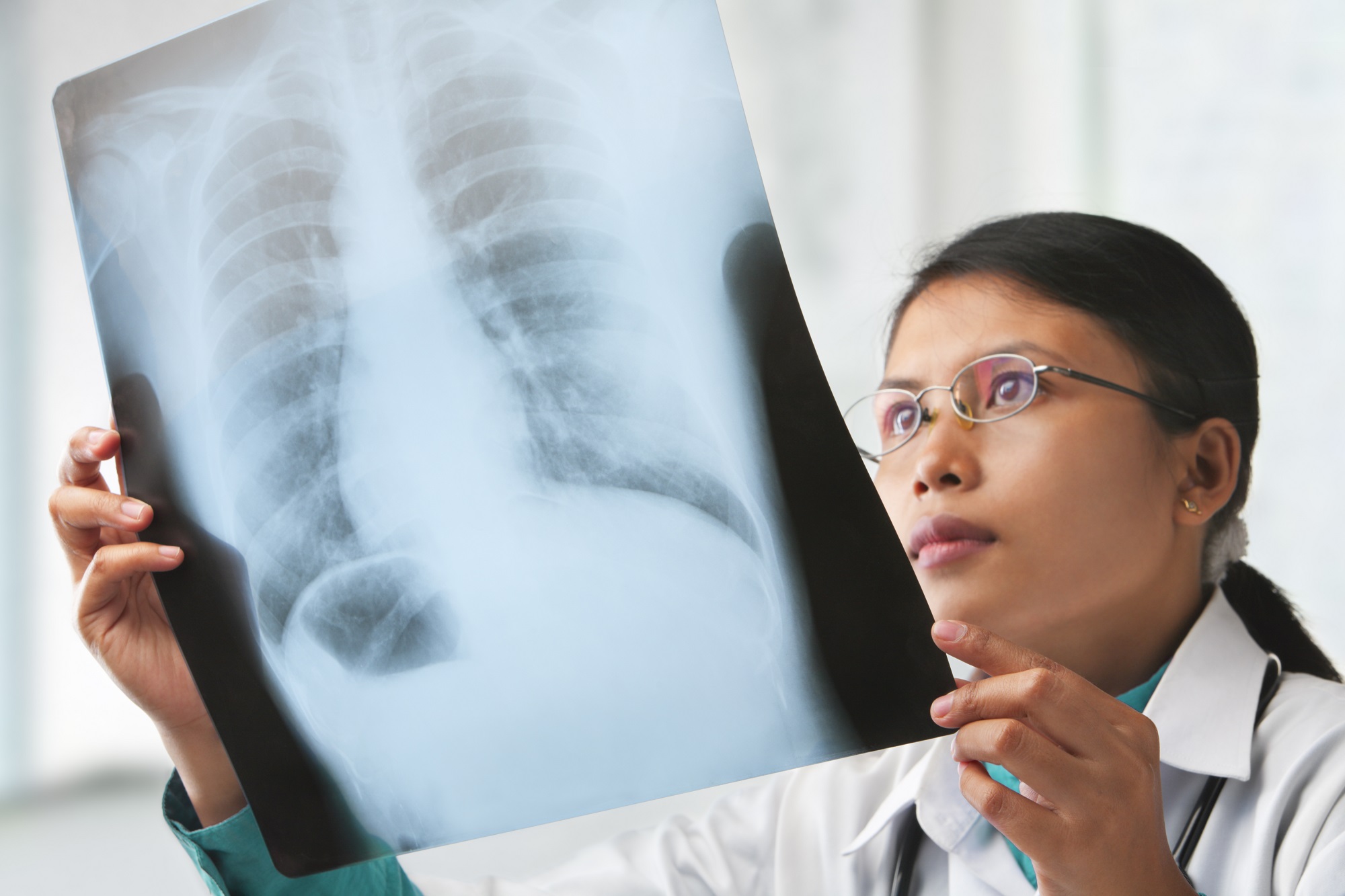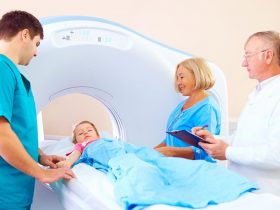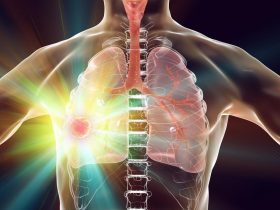In a perfect world, autophagy is a natural process that protects cells and organisms. Think of this metabolic action as cellular housekeeping, sweeping dysfunctional organelles, aggregated macromolecules, misfolded proteins, or pathogens into the trash bin.1
Autophagy is at the center of two current research trends. It’s been suggested that fasting can speed up autophagy and may essentially slow down the aging process by flooding the body with super-healthy, youthful cells.2 On the flip side, researchers are asking if suppressing or inhibiting autophagy can be a therapeutic approach to actively obstruct the growth and survival of various cancers – since studies report that certain cancers rely on autophagy to survive and progress. 3
Investigating how, when, and why autophagy may be a culprit in primary and metastatic LKB1-deficient KRAS-mutant non-small cell lung cancers (NSCLC) is of particular interest to Jessie Yanxiang Guo, PhD, Resident Member at Rutgers Cancer Institute of New Jersey. The National Institutes of Health (NIH) showed its support of Dr. Guo’s research by recently granting her a $1.7 million award to investigate the role of autophagy in the formation of tumors driven by mutations in tumor suppressors known as LKB1 and oncogene KRAS. The project goal is to validate the novel concept that blocking this cellular self-cannibalism process is a powerful therapeutic strategy against primary and metastatic LKB1-deficient KRAS-mutant NSCLC.
“As of right now, there is no standard treatment for this kind of cancer – and that includes no form of immunotherapy,”
Dr. Guo emphasizes. “We really need to find a treatment for patients with this subtype of NSCLC.”
Dr. Guo’s research is a solid step toward a new treatment. As she stated in a press release,
"In this project we aim to discover pathways that are regulated by autophagy and could be used for the therapeutic targets in the treatment of LKB1-deficient KRAS-mutant NSCLC, which may provide a basis for future clinical trials.”
Putting Dr. Guo’s work into perspective, the American Cancer Society tags lung cancer as the leading cause of death in both men and women, with non-small cell lung cancer accounting for more than 85 percent of these cases – and KRAS and LKB1 two of the most frequent mutations detected in NSCLC.4 Patients with co-mutations of KRAS and LKB1 can develop aggressive lung tumors, show a high frequency of metastasis, and are, as of now, resistant to standard therapeutics.5
Using pre-clinical mouse models, Dr. Guo previously found that autophagy deficiency altered the fate of KrasG12D-induced carcinomas to rare, predominantly benign oncocytomas, caused accumulation of defective mitochondria and reduced the tumor growth. These results suggested that Ras-driven cancers may be susceptible to autophagy inhibition therapy in order to slow the formation and spread of tumors, a process known as tumorigenesis, specific to LKB1-deficient KRAS-mutant lung cancer.6
Moving forward with their recently funded NIH project, Dr. Guo and colleagues will explore the mechanism by which autophagy regulates lipid metabolism for LKB1-deficient KRAS-mutant tumorigenesis in laboratory mouse models and determine how autophagy promotes LKB1-deficient KRAS-mutant tumor metastasis. The successful completion of this project will give researchers a deeper understanding into how LKB1-deficient KRAS-mutant tumors utilize autophagy to meet massive energy demands.
This project will continue through January 2025.
1. Marx, V. Autophagy: eat thyself, sustain thyself. Nat Methods12, 1121–1125 (2015). https://doi.org/10.1038/nmeth.3661 2. Longo VD, Panda S. Fasting, Circadian Rhythms, and Time-Restricted Feeding in Healthy Lifespan. Cell Metab. 2016;23(6):1048-1059. doi:10.1016/j.cmet.2016.06.001 https://www.ncbi.nlm.nih.gov/pmc/articles/PMC5388543/ 3. Autophagy and cancer – issues we need to digest, Emma Y. Liu, Kevin M. Ryan Journal of Cell Science 2012 125: 2349-2358; doi: 10.1242/jcs.093708 4. Uras IZ, Moll HP, Casanova E. Targeting KRASMutant Non-Small-Cell Lung Cancer: Past, Present and Future. Int J Mol Sci. 2020;21(12):4325. Published 2020 Jun 17. doi:10.3390/ijms21124325 5. Caiola, E., Falcetta, F., Giordano, S. et al.Co-occurring KRAS mutation/LKB1 loss in non-small cell lung cancer cells results in enhanced metabolic activity susceptible to caloric restriction: an in vitro integrated multilevel approach. J Exp Clin Cancer Res37, 302 (2018). https://doi.org/10.1186/s13046-018-0954-5#citeas 6. Guo JY, White E. Autophagy, Metabolism, and Cancer. Cold Spring Harb Symp Quant Biol. 2016;81:73-78. doi: 10.1101/sqb.2016.81.030981. Epub 2017 Feb 16. PMID: 28209717; PMCID: PMC5521269. https://pubmed.ncbi.nlm.nih.gov/28209717/







